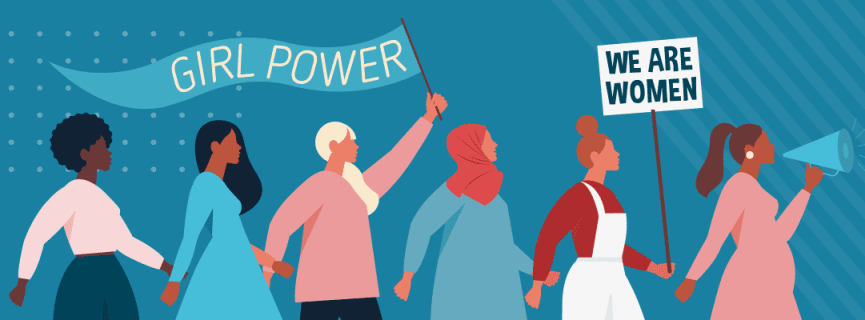-
Medicine Walk: Literary Analysis
After analyzing Medicine Walk, I decided to apply two literary theories that I believe would enhance my understanding of the book. Using different literary lenses allows me to view the novel from different, undiscovered perspectives.

Image retrieved from Pediaa Post-colonialism is the first literary theory I will use to analyze Medicine Walk. The mandatory secondary schools, bad self-image, and neglected traditional teachings are all results of post-colonialism in the novel.

Image retrieved from Post Colonial Literature and Theory The mandatory secondary education displays themes of post-colonialism. The schools established by European settlers discredit the Indigenous way of life. Frank didn’t enjoy school and believed that “there’s better and more important learning to be had out…on the land” (37), yet he was still forced to attend till he reached the legal age of dropping out. The required attendance depicts the forced assimilation into Western society. This post-colonial method may discourage Indigenous readers from learning their traditional teachings.
Similarly, post-colonialism is seen in the neglected traditions and culture. Eldon states that he “never had the time for learnin’ about how to get by [in nature]…white man things was what [he] needed to learn if [he was] gonna eat regular. Indian stuff…got left behind on accounta [being] busy gettin’ by in that world.” (52) The forced assimilation into Western society for survival resulted in a mass cultural loss. By invoking the belief that traditional teachings are useless, this text may dissuade Indigenous readers from learning them.
Additionally, the lousy self-image due to cultural hegemony portrays post-colonial themes. Eldon told Frank that his “grandparents were both half-breeds” (51). The term “half-breed” is usually perceived as insulting, implying that a person of mixed race is different or inferior. Thus, Eldon using this term when speaking of his family, indicates low self-esteem due to the widespread preconceived notions of colonists. An Indigenous reader may be angered by the demeaning terminology used in this text.
The second literary theory I will be discussing is feminist criticism. Medicine Walk conveys women as strong and independent, as seen through Eldon’s mother, Angie, and Becka.

Image retrieved from Best Colleges Firstly, Eldon’s mother powerfully portrays feminism. Eldon’s mother became a widow due to the war. During that period, women often relied on men for financial stability; yet Eldon’s mother didn’t do that. She worked various jobs to support her son. Eldon states, “she’s where I got so strong.” (87) When his dad died, “she just got even more gumption” (87). Eldon used “the sight of her… [to] keep [him] going” (87). Eldon’s mother defies the “damsel in distress” stereotype through her perseverance. This feminist approach may encourage readers to persevere through tough times.
Secondly, feminism is also displayed through the character Angie. Angie’s single mother depended on men for financial support, leaving her family in shambles. Her mother’s negative experiences encouraged her to forge her own path and find a job. Angie “swore [she’d] never…rely totally on a man. So [she] went to work.” (177) Her independence in a time when women relied on men illustrates feminist behaviour. Angie also defied the “damsel in distress” stereotype by becoming independent. Angie’s strong character may persuade readers to seek independence.
Thirdly, Becka’s character represents feminism. Her forest-located home displays her independence. Becka also “[fixed] the roof…and chinked the walls” (73) of her house alone. Her knowledge of renovation defies the stereotypical gender role of male-dominated construction. Becka’s character can influence readers to defy stereotypical gender roles and become independent.

Image retrieved from Readers Unbound Richard Wagamese’s Medicine Walk interprets a heart-wrenching yet beautiful story. The strong themes and emotional points made for a good read, and an even greater lesson.
To learn more about Richard Wagamese and his other books, visit my padlet below.
-
Hello World!
Welcome to WordPress! This is your first post. Edit or delete it to take the first step in your blogging journey.
-
Medicine Walk: Making Connections
While reading, I made multiple connections with characters and events to my personal life, media, and the world. I decided to discuss those connections in hopes of relating to some of you readers.

Image retrieved from Language Magazine Eldon reminds me of my father. Both men were absent from their children’s lives causing them irreversible trauma and leaving the family in shambles. While Eldon’s mother reminds me of my mom. Both women worked hard to survive and sacrificed their lives for their children. My mom worked hard for countless hours to provide for my sister and me, as did Eldon’s mom.
Eldon was a character I was drawn to from the beginning and found myself relating to often. Since childhood, Eldon had only his mother to rely on. His father an absent figure due to the war, which eventually led to his death. After his father’s death on the battlefield, Eldon felt responsible for his mother’s livelihood. “He wanted to protect her. So work became his war. He turned thirteen, and he became serious” (82). He matured early to fill in his father’s absent position. I relate to him because I also had an absent father figure growing up. I also understand the feeling of maturing early. I was often told that I was “mature” for my age. I never understood what that meant. I realize now that I tried to grow up quickly to lessen my mother’s workload. This included me feeling responsible for my younger sister; since I believed that if I helped raise her, she wouldn’t feel my dad’s absence.

Image retrieved from Leanne Dyck’s Blog When reading, I noticed connections between texts, specifically to Richard Wagamese’s Indian Horse. Both books were written by the same author, which explains the various similarities. Indian Horse follows the story of Saul Indian Horse, a First Nations boy from Ontario who survives the residential school system and becomes a talented ice hockey player, only for his past traumas to resurface in his adulthood. Eldon and Saul are alike in their shared Indigenous roots. When looked at through a post-colonial prespective, both men experienced cultural destruction due to Western society. Similarly, Eldon and Saul’s past traumas affect their futures. Eldon’s abandoning his mom, killing his best friend, and leaving his son, affect how he views himself. Eldon told Frank that he believes himself to be a “coward” (153). This is similar to Saul’s trauma from residential schools that changed his view on his passion, hockey, and caused him to quit. Both characters also decide to go on a journey of discovery where they use their Indiegoous roots to recover from past trauma. Connections in the setting are seen in the seeking of Indigenous land for healing.

Image retrieved from Resurgence Behavioral Health Medicine Walk made me think of all the Indigenous lives that have been harmed due to discrimination. Frank was bullied in school; he was “picked on,…called Injun, wagon-burner, squaw-hopper, Tonto” (96). This displays the severe racism he experienced and, I believe, partially why he dropped out of school at 16. It also makes me wonder about the many families broken apart due to alcohol. Frank never got to form a connection with his father since he “was mostly always drunk or drinkin’ an’ he never [made] much sense” (96). This showcases Frank’s struggles with an alcoholic father. The plot of the story also makes me wonder about the author’s life. Does Richard Wagamese see himself in Eldon’s position, and if so, does he hope that his estranged son will forgive him for his absence?

Image retrieved from The Communique I would say that the genre of this novel is domestic fiction. Like other books in this genre, Medicine Walk is a sentimental novel that focuses on the domestic life of Frank and Eldon as they learn to forgive and heal from their past trauma.
Unlike other books in this genre, Medicine Walk feels less like a novel and more like a long conversation: between a dying man and his child, between a man and his past, and between people and nature. Richards’s compassionate portrayal of addiction and shame and his examination of grief, family, history, and forgiveness, make Medicine Walk a unique book.
Some stylistic techniques and conventions I noticed while reading are foreshadowing and understatement. Foreshadowing is seen in the passage:
“Different fella now, but I knew him good at one time. Least I thought I did.” (57)
The old man saying that he knew Eldon at one time foreshadows the revelation of the past that Eldon and the old man share. Specifically, this comment foreshadows Eldon’s story of Angie and Bunky, who turns out to be the old man. It effectively keeps the reader hooked and interested in the history of the characters and encourages them to keep reading to reveal this secret record.
Understatement is seen in the dialogue between Eldon and Frank:
“Son of a bitch!” Eldon said. “That sucker went three pounds or I’m fucked.”
“Drunk is what you are,” the kid said.
“Hell, it’s your birthday, kid. A little celebratin’ is all I done.” (123)
Eldon’s saying that “a little celebratin’ is all [he’s] done” is an understatement because Eldon is very drunk. This is an understatement because of the extent of Eldon’s “celebratin’,” and because it underestimates what Eldon has done by drinking on Frank’s birthday. Eldon promised Frank he would remain sober all day, and so Eldon’s drinking is another broken promise he made to Frank. This understatement effectively causes the audience to sympathize with Frank’s situation and to understand the resentment he harbours towards his dad.
-
Subscribe
Subscribed
Already have a WordPress.com account? Log in now.

![How To Write The Perfect Book Title [Examples Included]](https://scribemedia.com/wp-content/uploads/2018/09/How-To-Write-The-Perfect-Book-Title-v2.jpg)


